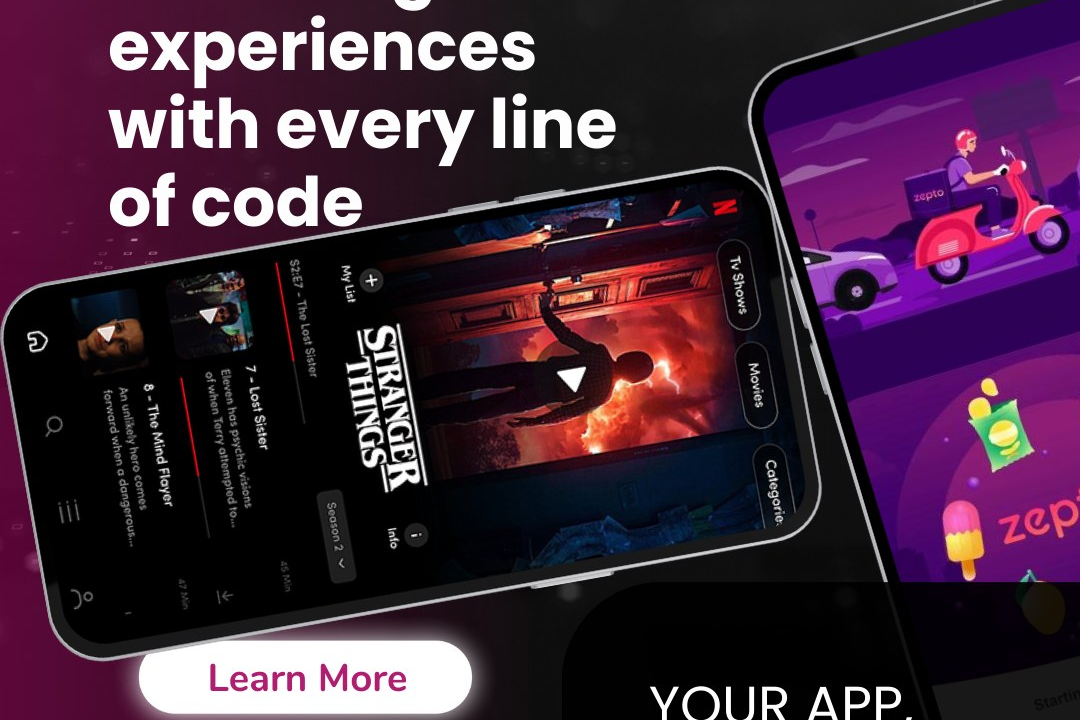Flutter For Mobile Health Apps
Optimizing Mobile Health Applications with Flutter
Flutter For Mobile Health Apps
Flutter is an open-source UI software development kit created by Google that allows developers to build natively compiled applications for mobile, web, and desktop from a single codebase. For mobile health apps, Flutter offers significant advantages including rapid development due to its hot reload feature, a rich set of pre-designed widgets for crafting visually appealing interfaces, and strong performance thanks to its direct compilation to native code. Additionally, Flutter's ability to integrate with various APIs and third-party libraries makes it suitable for accessing health-related data and services. Its strong community support and extensive documentation further empower developers to create secure, scalable, and user-friendly health applications that can enhance patient engagement, streamline workflows, and improve healthcare delivery.
To Download Our Brochure: https://www.justacademy.co/download-brochure-for-free
Message us for more information: +91 9987184296
1 - Introduction to Flutter: Understand what Flutter is, an open source UI toolkit from Google, designed for building natively compiled applications for mobile, web, and desktop from a single codebase.
2) Dart Programming Language: Learn about Dart, the programming language used by Flutter. Focus on its features, syntax, and how it optimizes performance for mobile applications.
3) Flutter Architecture: Gain insights into Flutter's architecture, including its widget system, rendering engine, and how it differs from traditional mobile frameworks.
4) Cross Platform Development: Explore how Flutter allows developers to write code once and deploy it on both iOS and Android, reducing development time and cost, which is particularly beneficial for health apps targeting diverse users.
5) UI Design Principles: Discuss best practices in user interface (UI) design specifically for health apps, ensuring accessibility and usability for all types of users, including those with disabilities.
6) Pre built Widgets: Familiarize yourself with Flutter’s extensive library of pre built widgets, which can be particularly useful for creating responsive layouts and speeding up development time.
7) State Management: Understand different state management approaches in Flutter (Provider, Riverpod, BLoC), which are crucial for managing complex app states in health applications.
8) Integrating APIs: Learn how to connect Flutter apps with health data APIs, enabling features like retrieving user health metrics, interfacing with electronic health records (EHR), or integrating with wearable device data.
9) Data Storage Solutions: Explore options for local data storage in Flutter, including SQLite and shared preferences, critical for managing user data securely and efficiently in health apps.
10) User Authentication: Cover essential authentication methods to secure user data, such as OAuth, Firebase Authentication, and implementing secure access protocols.
11) Responsive Design: Discuss implementing responsive UI practices to ensure apps perform well on various screen sizes and orientations, which is crucial for a wide range of devices in health applications.
12) Testing and Debugging: Understand the testing framework in Flutter, including unit tests, widget tests, and integration tests, to ensure robust health applications.
13) Deployment Process: Learn the steps involved in deploying Flutter applications to both the Apple App Store and Google Play Store, including best practices for submission and ongoing maintenance.
14) Health App Compliance and Security: Discuss the importance of regulatory compliance (HIPAA, GDPR) in developing health applications, and how to leverage Flutter to implement security best practices.
15) Building Engaging Features: Explore the implementation of engaging features in health apps, such as notifications, health trackers, and reporting tools, to enhance user interaction and retention.
16) Real world Case Studies: Analyze successful health apps built with Flutter, understanding their architecture, design decisions, and the technologies they integrated.
17) Future of Flutter in Healthcare: Discuss emerging trends in mobile health technology, including telehealth, AI in healthcare, and how Flutter remains relevant in this evolving landscape.
18) Hands on Project: Conclude the training program with a hands on project where students build a simple health app, allowing them to apply what they’ve learned and bolster their portfolios.
This training program should provide students with a comprehensive understanding of how Flutter can be effectively utilized in developing mobile health applications.
Browse our course links : https://www.justacademy.co/all-courses
To Join our FREE DEMO Session: Click Here
Contact Us for more info:
Flutter Training in Anakapalle
Java Token Management
should i learn c++ or java
iOS User Experience Metrics
JAVA FEES











